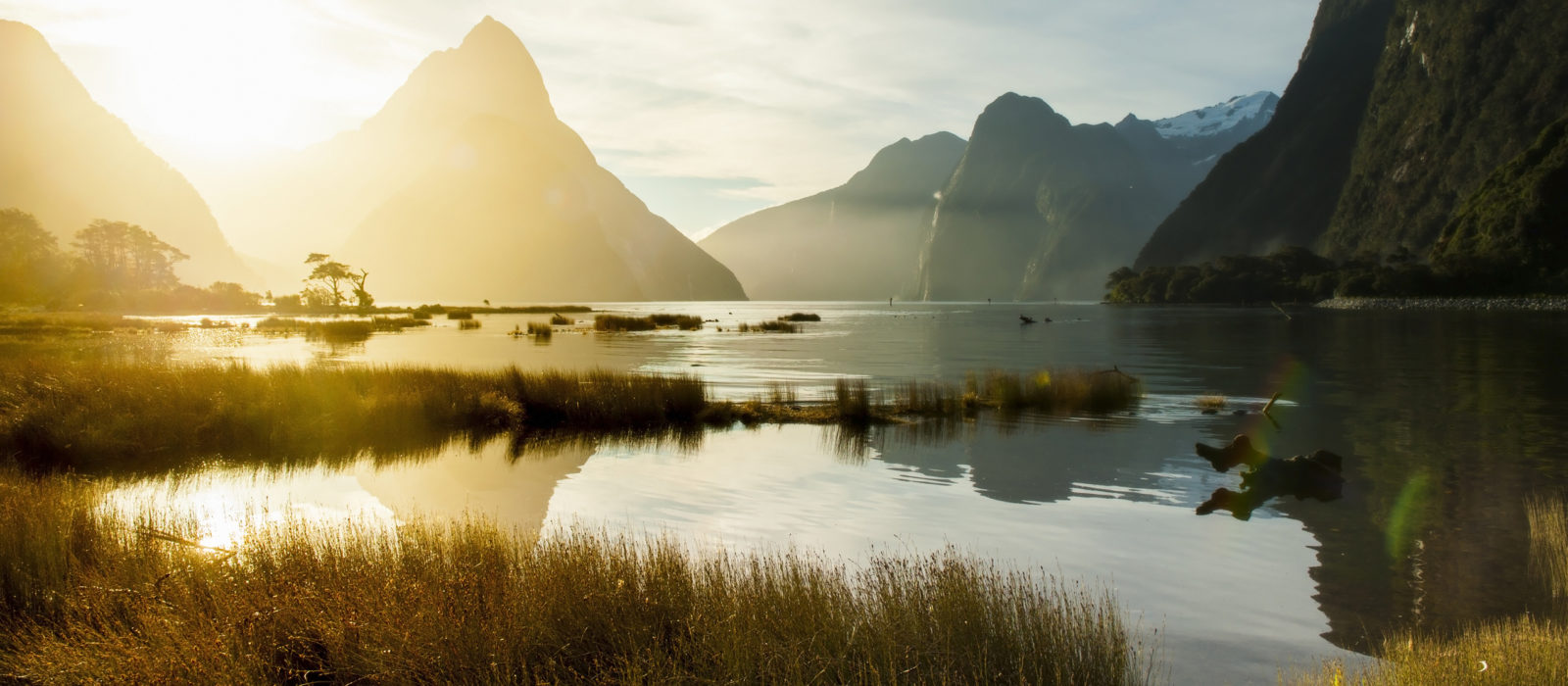Published on: November 14th, 2016
Last modified: December 21st, 2022
We've compiled our list of most frequently asked questions to help you get prepared before your big adventure to New Zealand. Please read through the questions, using the navigation bar on the left hand side of your page to move easily between the different sections.
Please note that requirements and advice can change so we do recommend you check in with your own travel insurer, doctor and relevant local embassies before embarking on your adventure.
Are there any entry requirements for New Zealand?
Visas
Most travellers from the USA, Canada and UK are able to enter New Zealand without a visa via the visa waiver programme, and stay for up to 90 days. Travellers must however apply for a New Zealand Electronic Travel Authority before departure (NZeTA). A useful website for checking the entry requirements ahead of travelling to New Zealand is https://www.nzetavisawaiver.com/
Passports
Your passport must be valid for at least three months beyond the end of your stay in New Zealand.
The same passport must be used to apply for the NZeTA and to travel to New Zealand. This is particularly relevant to applicants with dual nationality. The NZeTA is electronically linked to the holder’s passport.
We will confirm certain elements of your trip such as domestic flights, permits or train tickets using your current passport details. If a member of your party changes their name in their passport after booking (for example, through marriage or adoption) this could mean having to reissue important parts of the trip at an extra cost and subject to availability.
Please note that requirements can change and we recommend that our guests contact the local embassy in the country where you live for the most recent and up to date information.
Are there any laws, rules or regulations I should be aware of?
Yes, New Zealand has strict biodiversity rules as it’s free of many insects, pests, plant diseases and animal infections that are common elsewhere in the world. Substantial fines will be incurred if you arrive carrying animal products including skin, hair, dung, feathers, bone, coral, eggs and sea shells. Some are banned because they can harbour pests and diseases; others because they pose a threat to endangered species. Fresh perishable foodstuffs, such as fruit, vegetables and meat and items manufactured from plant products are also prohibited.
Do I need travel insurance?
Yes, once your trip is confirmed it is essential that you take out comprehensive travel insurance to cover you in case anything unexpected happens.
We always recommend that our guests get the maximum level of coverage that you feel comfortable investing in. Read more about travel insurance for US travellers here and for travellers from other countries here.
Do I need to visit a travel doctor before my trip?
Yes, it is always recommended to talk to your Travel Doctor before taking a trip. You should discuss your itinerary and international travel arrangements to hear any recommendations or advice they may have. Travel to New Zealand does not commonly require vaccines or medication however it’s always best to check in with your doctor about your particular requirements. As a general rule New Zealand has good medical infrastructure although as you would expect, there are fewer medical services in rural areas.
What do I need to know about my regional flights?
Most flights will be on the national carrier, Air New Zealand. Domestically the airline does not operate a business class cabin, just economy class. The standard luggage allowance is one bag per traveller weighing up to 23kg (50lb). Excess luggage is sometimes permitted at an extra cost and we strongly recommend this is arranged in advance. Your travel designer or concierge can help you with this.
Typically check-in will close 30 minutes before your scheduled departure.
Seat assignment is allocated at check-in, however if you would like specific seats please inform your travel designer or concierge at the time of booking and they’ll do their best to accommodate, however, seat assignment will always be at the discretion of the airline.
For itineraries that include light aircraft or helicopter flights – please speak with your Jacada team before departure to check on weight restrictions.
What will I receive from Jacada before I depart?
Travel pack
Before you head off on your adventure you will be sent a travel pack. The travel pack is full of great information and is also a beautiful keepsake. It is not necessary to travel with vouchers or confirmations on your trip but we do recommend having a printed copy of your travel itinerary to hand when you arrive into New Zealand.
Bon Voyage email
Around 2 weeks before you depart we will email you an electronic version of your travel pack including your domestic flight tickets. Once you’ve received this email your Travel Designer will reach out to arrange a time for you to talk on the phone to go over any last minute questions and talk you through the information we’ve sent over.
Do I need to bring the local currency?
Yes, although it can be obtained on arrival quite easily. New Zealand’s unit of currency is the New Zealand Dollar (NZ$). Credit and debit cards are widely accepted across the nation – in restaurants, hotels, petrol stations and there’s a wide, reliable network of ATMs. However, it’s worth noting that if you’re travelling to very remote areas you should plan to take out cash before you leave a major hub as ATM’s are not always available in rural areas.
Foreign currency and travellers cheques can be exchanged at banks, travel exchange and hotels in the major centres.
Can you tell me about tipping and etiquette in New Zealand?
Tipping is entirely discretionary in New Zealand and is offered in appreciation of good service, for this reason services are rarely added to your bill – if you want to tip you will need to give cash to your server. You should not feel obliged to tip a tour guide, waiters or concierge, it is however appropriate and appreciated where the service has been exceptional. In keeping with New Zealand’s relaxed atmosphere, the service is often more casual than in many countries.
Here’s a rough guide for tipping amounts, should you wish to recognise good service.
- Restaurants, cafes and bars: 10% of the bill is custom in restaurants with tips often shared amongst the staff. More casual cafes and coffee shops may have a tip jar at the counter for small change gratuities.
- Taxis – It’s generally acceptable and appreciated that the bill is ‘rounded up’ to the nearest couple of dollars.
- Hotels – A dollar or two per bag would be acceptable for porters who deliver your bags to your room. A tip of NZ$2-NZ$5 for delivery of room service meals is also appropriate.
- Tour Guides – For airport and inner city transfers, a tip of NZ$2-NZ$5 per person. For half day tours, a tip of NZ$20-NZ$50 per person and for full day tours, a tip of NZ$50-NZ$100 would be appropriate.
- Lodges – Guests are not expected to tip. However, if a guest wishes to express gratitude by way of a tip for exceptional service, then NZ$50-NZ$100 per night would be appropriate and would typically be shared amongst staff.
Please note – some employees are forbidden from accepting gratuities for example, casino dealers, security guards and other positions of authority.
What’s the weather like and how should I pack?
What you pack for your trip can change depending on the time of year and the types of activities you’ll be taking part in. Often, when visiting New Zealand you will visit a variety of climates and so we recommend packing a good layering wardrobe to allow for these changes. It’s also a good idea to chat through your itinerary with your concierge or travel designer, who can help you with a specific packing list for your trip.
At major hotels or larger lodges, laundry will be accessible and often provided, please ask your Jacada team if there is anywhere on your trip where laundry is not possible – it can be handy to know on longer trips. Just a note that laundry services at hotels can be quite expensive.
Should I make restaurant reservations?
We highly recommend that you make restaurant reservations in advance of your trip. Once your trip is confirmed you will be introduced to your concierge who will be able to assist you in not only making the reservations but also making recommendations based on your preferences.
How can I keep connected on my trip?
Plugs and Power
New Zealand works on 230V and the plug has three flat pins in a triangular pattern. It’s worth purchasing an adaptor for convenience however some of your accommodations may be able to provide this for you.
Wifi and Internet
Connections are generally very good in New Zealand but you should also check with your network provider what the overseas charges may be incurred if any. Again, if you’re travelling somewhere very remote, and connectivity is important to you, you should speak with your Jacada team about connectivity in that area.
Please contact your Jacada travel designer or concierge before your trip with any further questions.





